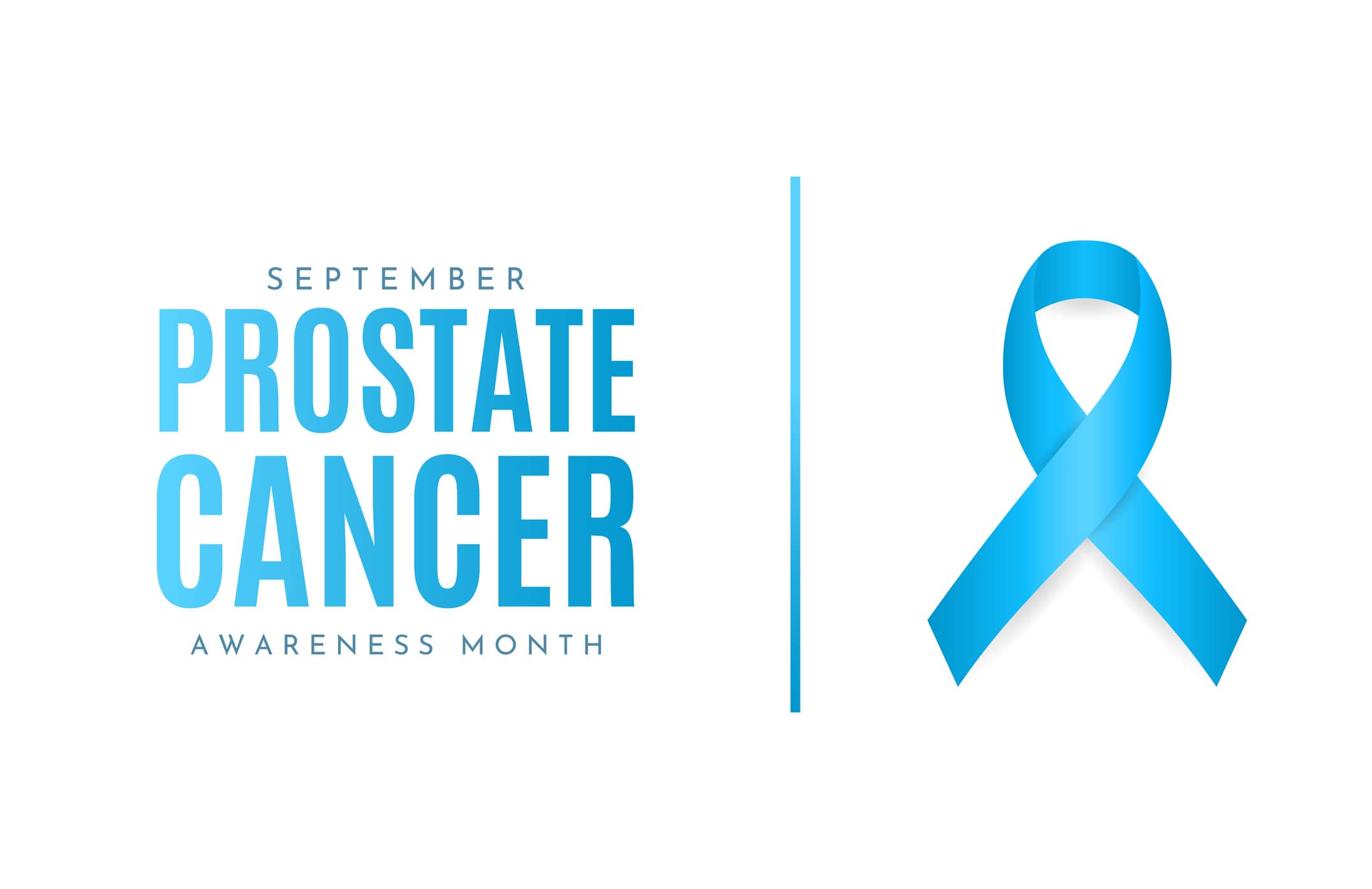-
How Hypothyroidism Affects Men’s Fertility
How Hypothyroidism Affects Men’s Fertility

When you think about hypothyroidism, you probably think of it as a disease affecting women. That’s because it affects far more females than males, but males can have thyroid disease, too. The problem is that men often experience symptoms that are unique, and sometimes doctors miss the signs.
Hypothyroid Symptoms in Men
The process of diagnosing hypothyroidism is the same, regardless of gender. However, this condition, in which an underactive affects the body affects the body in many different ways, is often caused by the immune system attacking or damaging the thyroid gland. An iodine deficiency can cause hypothyroidism, as can certain medications and surgeries. When the thyroid doesn’t produce enough thyroid hormone, it can cause changes in body weight, fatigue, and other symptoms that diminish quality of life, including problems with mental capacity and bowel movements. In older men, however, symptoms can sometimes be missed because they occur in men without thyroid disease, too. Symptoms of thyroid disease in males include:
- Hair loss
- Reduced Libido
- Loss of muscle mass and strength
- Erectile dysfunction
- Delayed ejaculation
- Infertility
- Depression
- Fatigue
- Intolerance of Cold
- Weight Gain
- Pain and stiffness in the joints
- Puffy face
- Elevated blood cholesterol level
- Slowed heart rate
Diagnosis and Treatment for Hypothyroidism
Fortunately, many of these symptoms can be reversed with treatment. Hypothyroidism is diagnosed the same way in men and women, with a blood test to assess thyroid function. The primary treatment for hypothyroid is a thyroid-replacement pill. Many people have to take this synthetic thyroid hormone for the rest of their lives, but it is simple, safe, and effective when administered correctly. Your doctor will monitor your hormone levels, in order to adjust your medication as needed.
Let Center for Vasectomy Reversal Help Improve Your Reproductive Health
If you believe you may be exhibiting the symptoms of hypothyroidism, especially if you feel it may be inhibiting your fertility, be proactive in asking your doctor for a blood test. Infertility can be a complicated issue, and it is important to stay informed and alert about things that could be causing it. At the Center for Vasectomy Reversal, we pride ourselves on helping men improve their fertility through uncompromising, concierge-level patient care. Under the direction of Dr. Joshua Green, our team provides state-of-the-art treatment for men who need a reversal of their vasectomy or have other fertility concerns. To learn more about the work we do or our discounts for active duty military and veterans, contact us through our website or call 941-894-6428.
-
Why Your Partner is Always Tired During Pregnancy
Is Your Pregnant Partner Always Exhausted?

During the first trimester, your partner can hardly keep her eyes open. The second trimester is better, but when the third trimester hits, you notice she’s right back to being tired all the time. What’s up with that? What is it about pregnancy that causes women to be so fatigued?
What Causes Fatigue During the First Trimester?
It is common for a woman to feel fatigued, or even exhausted in the beginning of a pregnancy. She might feel like she can’t get up in the morning, feel sluggish during the day, and be eager for bed in the evening. This is a sign of early pregnancy, and it can happen as early as one week after conception. The truth is that pregnancy is hard work, even from the very beginning, because the woman’s body is building a baby! Estrogen and progesterone increase, and these hormones act as a natural sedative. Additionally, the lower blood pressure and blood sugar, combined with increased blood flow, can cause fatigue. In the first trimester, a lot of energy goes into building the placenta, and if the woman has morning sickness, she may be even more exhausted. The good news is that, as the body adjusts to the increased hormones and finishes the task of creating the placenta, her energy will return during the second trimester.
Why is Your Partner So Tired During the Third Trimester?
Just when it seems like she’s bounced back, the third trimester hits and she’s wiped out again. Why does the fatigue return towards the end of the pregnancy? Well, for one thing, she’s carrying around the extra weight of the pregnancy. It’s probably hard for her to sleep, she may be suffering heartburn, her back is sore, and the stress and anxiety of impending motherhood can be exhausting. Most of the time, this fatigue is not harmful, but if it becomes unmanageable, she should talk to her doctor to rule out other conditions. Problems with the thyroid, gestational diabetes, and anemia can all take a toll, and some women experience prenatal depression. In rare cases, pregnant women develop chronic fatigue syndrome, particularly if they have suffered from hyperemesis gravidarum, a severe form of morning sickness. The doctor can offer solutions to help manage any additional issues she’s experiencing.
How Can You Help?
While the doctor can help manage underlying conditions, most fatigue during pregnancy is just a fact of life. You can help your partner through it by offering extra support and encouraging her to make a few changes to her routine.
- Take on some extra chores. She’s probably feeling pressured to get everything ready for the baby, but she needs to take it easy right now. Ask what you can do to help or, better yet, just notice what needs to be done and do it.
- Encourage her to rest. Any extra sleep she can get, including an earlier bedtime and naps during the day, if she can manage it, will be beneficial. Do everything you can to facilitate.
- Get your kids involved. If you have older children, help them take responsibility for more tasks around the house. Let them know that their mom needs rest. If you have small children, encourage her to nap when they do.
- Take a walk with her. Counterintuitive though it may seem, exercise can help combat pregnancy fatigue. It’s also good for her body and for the baby, and if you engage in some light exercise with her, it can help strengthen your bond as you prepare to welcome a new family member.
- Prepare nutritious food. A diet full of nutrient-dense food will help improve her energy levels, and you can help by making her some healthy snacks to eat during the day. Peanut butter on wheat toast, berries in Greek yogurt, and other snacks that combine protein and complex carbs can provide long-lasting energy, and eating little meals throughout the day can help with digestive issues like heartburn.
- Pamper her a little bit. Give her a massage, or spring for a professional pregnancy massage. Give her space to relax and read or soak in a warm bath. Do whatever you can to spoil her a little bit while she’s carrying new life in her body.
Center for Vasectomy Reversal
At the Center for Vasectomy Reversal, we love helping people start their healthy families. We pride ourselves on helping men improve their fertility through uncompromising, concierge-level patient care. Under the direction of Dr. Joshua Green, our team provides state-of-the-art treatment for men who need a reversal of their vasectomy or have other fertility concerns. To learn more about the work we do or our discounts for active duty military and veterans, contact us through our website or call 941-894-6428.
-
Prostate Health Month
Prostate Cancer Awareness Month

September is Prostate Cancer Awareness Month. Why is awareness of prostate health so important? It is important to understand how prevention, early detection, and treatment can help improve the survival rate of this disease, which is currently the second leading cause of cancer death for men in the United States. According to the latest data, more than 288,000 men in the United States are diagnosed each year, and nearly 35,000 of them die. Understanding the warning signs and risks is vital, and so is being proactive about screening, especially if you are in a high risk group.
Understanding Your Risks
All men are at risk for prostate cancer, but some groups are at a higher risk than others. People of African ancestry have a 70 percent higher risk than other groups, and older men are at a higher risk than younger men. A family history of cancer increases your risk, and it is not just prostate cancer in a male relative. The risk is also increased by a family history of breast cancer, particularly in a sister or mother. While these factors cannot be modified, there are certain risk factors that can be changed, like smoking and a sedentary lifestyle.
Screening for Prostate Cancer
With early detection, the odds of surviving prostate cancer are high. Warning signs for this disease include difficulty with urination and sometimes pain in the hips or back. However, many people with prostate cancer experience no symptoms, but are diagnosed after a biopsy is ordered because of an abnormal blood test. This blood test, screening for a marker called prostate-specific antigen (PSA). There is evidence that regular PSA screening can reduce mortality from prostate cancer. It is recommended that men begin getting screened for prostate cancer at age 50, or at 45 if they are in a higher than average risk category.
Treating Prostate Cancer
Fortunately, there are effective treatments for prostate cancer, particularly if it is caught early, when it is still confined to the prostate. Surgery and some forms of radiation are used to treat prostate cancer, and for aggressive prostate cancer, additional therapies area used. These therapies include those that target hormonal pathways, as well as chemotherapy, immunotherapy, and radiopharmaceutical therapies. Many new therapies have been developed over the past decade, and more are in the works.
Decreasing Your Prostate Cancer Risk
There are certain lifestyle modifications you can make to lower your risk of developing prostate cancer.
- Stop smoking. Smoking and using tobacco are bad for every part of your body, and they increase the risk of prostate cancer.
- Eat a nutritious diet. Aim for five servings of fruits and vegetables each day, focusing on eating colorful produce. Choose whole grains, and limit your consumption of red meat and processed meats, instead choosing fish, skinless poultry, beans, and eggs as your protein sources. Eat healthful fats like olive oil, avocados, and nuts. Limit your sugar intake, and cut down on salt.
- Get regular exercise. There is extensive research to indicate that staying active reduces the risk not only of prostate cancer but also heart disease, stroke, and certain other cancers.
- Ask your doctor about screenings. Particularly if you feel that you fall into a high-risk category, it is important to be proactive.
Trust Center for Vasectomy Reversal for Help Maintaining Your Reproductive Health
At the Center for Vasectomy Reversal, we pride ourselves on helping men improve their fertility through uncompromising, concierge-level patient care. Under the direction of Dr. Joshua Green, our team provides state-of-the-art treatment for men who need a reversal of their vasectomy or have other fertility concerns. To learn more about the work we do or our discounts for active duty military and veterans, contact us through our website or call 941-894-6428.
-
Vitamins that Can Help with Men’s Reproductive Health
Vitamins that Can Help with Men’s Reproductive Health

Infertility is a frustrating problem, and one that affects about one of every eight couples in the United States. Certain vitamins and supplements have long been recommended for women, but are there any vitamins men can take to improve their odds? Yes, there are a number of nutrients that help support reproductive function in men.
Vitamins and Other Nutrients that Help Both Men and Women
Since we know that certain vitamins are useful in promoting female fertility, let’s take a look at some that also work for men.
- Folate: This important nutrient is found mostly in dark green leafy vegetables, peas, nuts, and beans, as well as oranges, lemons, bananas, melons, and strawberries. Folic acid is the synthetic form of folate, and is in prenatal vitamins and fortified foods because can help boost the chances of conception, and can prevent neural tube defects in the baby.
- Acetyl L-carnitine: This is an acetylated formulation of an amino acid known as L-carnitine, which can help support reproductive function in women and improve sperm motility in men. Acetyl L-carnitine is a supplement, but you can find L-carnitine in meat, poultry, fish, and dairy products.
- Zinc: Low zinc levels have been linked to infertility, and zinc is important for maintaining normal sperm quality and function. For women, adequate zinc improves the time it takes to conceive. You can take zinc supplements, but it’s better to get it from foods like oysters, beef, and pork.
- B Vitamins: B vitamins benefit women’s fertility, and there’s evidence that they can improve sperm quality, boost production, and help with proper DNA synthesis. Take a B complex supplement, or incorporate into your diet some of the many vitamin B rich foods, which include yogurt, trout, shellfish, leafy greens, sunflower seeds, organ meats, beef, and much more.
- Calcium: Adequate calcium in the body can promote fertility in both men and women, boosting sperm production in men. It is easy and healthiest to ingest calcium through the foods you eat, including dairy products, leafy greens, nuts, and seeds.
- Coenzyme Q10: Coenzyme Q10 is produced naturally in the body, but increasing the amount of it in your blood can boost fertility, especially for those undergoing IVF. Research indicates that supplementing with CoQ10 can increase both sperm concentration and motility. Studies have not been as conclusive regarding its impact on women, but it is thought that it can increase ovarian response.
- Vitamin D: Potentially, vitamin D can improve men’s reproductive health. Studies have found a link between vitamin D deficiency and lower testosterone levels. Milk is fortified with vitamin D, and for people who are dairy-free, there is fortified soy milk, as well. Other great sources of this important nutrient include salmon and cremini mushrooms.
- Vitamin E: Vitamin E has been shown to protect sperm against oxidative damage, improving fertility. It can be found in nuts and seeds, fish like trout and salmon, colorful vegetables like butternut squash, red sweet pepper, and turnip greens, and avocado, mango, and kiwi fruit.
- DHA Omega 3s: Mostly found in seafood, DHA Omega-3s help women over 35 become pregnant, and increase sperm motility. If you are not someone who eats seafood, you can get this nutrient from a supplement.
- Selenium: This mineral can reduce the risk of miscarriage, and it can also improve sperm motility and semen quality. The richest sources of selenium include Brazil nuts, seafood, meat, poultry, and organ meats.
Male-Specific Nutrients
Some vitamins and minerals that are not appropriate for women trying to conceive can be extremely beneficial for their male partners.
- Vitamin C: This is another nutrient that reduces oxidative stress, preventing damage to cells. It also improves the absorption of iron, and when taken with vitamin E, it can increase sperm count and mobility. Vitamin C is, of course, found in citrus fruit, but you can also get it from strawberries, blueberries, blackberries, bell peppers, broccoli, cauliflower, and kale.
- Vitamin K: This vitamin helps with blood clotting, helps balance hormones, and supports strong, healthy bones. Vitamin K can be found in leafy greens and fermented foods.
- Vitamin A: Essential for men’s reproductive health, vitamin A helps with sperm production, motility, and quality. It also strengthens the immune system and helps maintain reproductive health. Foods full of vitamin A include carrots, sweet potatoes, leafy greens, fish oils, dairy products, and liver.
- Magnesium: Supplementing with magnesium has been shown to increase testosterone production, improving fertility. Magnesium can be found in spinach, pumpkin seeds, and tuna. Tuna is a great option, because it also contains other beneficial nutrients like omega-3 fatty acids.
For Help with Fertility and Information on Supplements, Trust Center for Vasectomy Reversal
Before adding any supplements to your diet, make sure to speak to a medical professional. Whether you need medical help with fertility or advice on useful lifestyle and dietary changes to improve your reproductive health, the Center for Vasectomy Reversal is here for you. We pride ourselves on helping men improve their fertility through uncompromising, concierge-level patient care. Under the direction of Dr. Joshua Green, our team provides state-of-the-art treatment for men who need a reversal of their vasectomy or have other fertility concerns. To learn more about the work we do or our discounts for active duty military and veterans, contact us through our website or call 941-894-6428.
Recent Posts
Popular Posts
categories
- Uncategorized
- Sperm Retrieval
- vasectomy reversal
- Emergency
- Dr. Green
- sperm count
- fertility
- male infertility
- MESA
- medical care
- low sperm count
- IVF
- male fertility testing
- anesthesia
- pregnancy
- sperm aspiration
- semen analysis
- post-vasectomy pain syndrome
- infertility
- VE
- anti-sperm antibodies
- older dad
- general anesthesia
- gender reveal party
- post-operative infections
- baby name
- parent
- baby's first year
- fertilization process
- spinal anesthesia
- ACS Fellow
- nutrition tips
- concierge-level care
- fertility planning app
- azoospermia
- out-of-town patients
- V-V
- post-vasectomy reversal
- conceiving
- vasectomy
- vasoepididymostomy
- smoking
- sperm quality
- baby registry
- infographic
- surgical care
- surgical consultation process
- prostate cancer
- baby gender
- family time
- COVID
- Baby Shower
- Child Care
- Halloween Costume Ideas for Babies
- Halloween
- Halloween Safety Tips
- Celebrity Infertility Spotlight
- Postpartum
- testosterone
- Father's Day
- Father
- Men's Health
- Thanksgiving
- Pregnancy Announcement
- Parenting Tips
- Sperm
